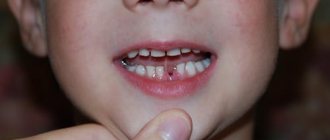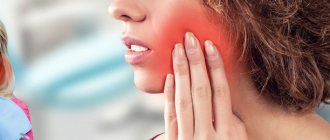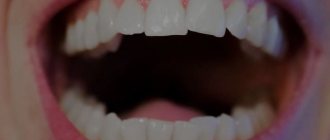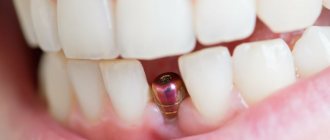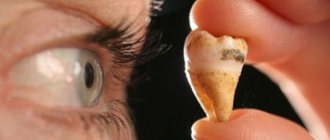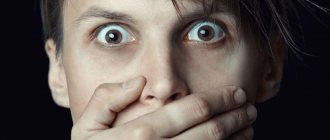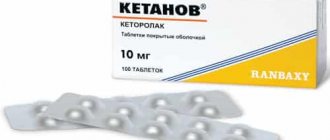The symptoms of many diseases worsen at night, this applies to both the common cold and cardiovascular diseases, arthritis and many other pathologies.
Increased pain often causes insomnia and additional discomfort, and many people resort to using sleeping pills and painkillers to reduce pain. AiF.ru asked a neurologist why the pain intensifies at night.
Thrilling sensations. Where does the sharp pain come from and what to do about it? More details
Concentration on pain symptoms
During the day, people are busy with daily activities, including work and school, and at night these distractions are absent. The person lies and concentrates exclusively on pain symptoms. Pain fills all thoughts and prevents you from thinking about anything else, thus causing additional stress, insomnia and worsening of a chronic condition.
“There are some types of diseases that manifest themselves as pain at night. There is a disease called restless legs syndrome, when pain in the legs appears during sleep. Painful sensations can also worsen at night and indicate that something is wrong with the body. In addition, pain is also our subjective perception. It's different for everyone. In many situations at night, due to the fact that the person does not have any blackout, the pain may be felt somewhat stronger,” says neurologist Yuri Andrusov .
Question answer
Why is it harmful to sleep with music?
Toothache
Why do my teeth hurt?
With the help of pain, our body signals about some problem. When you see a dentist, you need to describe your sensations as accurately as possible, since diseases are initially determined precisely by the nature of the pain.
So, let's start with the simplest thing. You have noticed that your teeth react painfully to cold, hot, sour, brushing your teeth, and also when you go outside and breathe in cold air. Most likely, the structure of the enamel is damaged. Such pain occurs for only a few seconds and quickly disappears.
The reason for its appearance may be:
- cracks, chips and abrasions
- thinning of enamel
- increased enamel sensitivity
The situation can be corrected using a special procedure - remineralization. It will help restore the structure of the enamel by saturating it with useful substances. It is also worth replacing your usual toothpaste with a special one with a high content of calcium or fluoride. Consult your dentist and he will tell you how best to proceed.
What else causes toothache?
Sometimes a tooth hurts due to diseases of neighboring organs. Painful sensations appear in the following cases:
- inflammation of the ear, nose and throat
- damage to the temporomandibular joint
- cervical spine injuries
In fact, the pain simply “radiates” into the tooth, but due to the high sensitivity of the soft tissues, it seems that it comes precisely from the root of the tooth or gum.
There are situations when a patient comes to the dentist and complains about a completely healthy tooth - this is already psychosomatics. Unpleasant sensations can appear due to severe stress, lack of sleep, or overload.
Pain due to dental diseases
In the vast majority of cases, the tooth is bothered due to caries, its complications and some other diseases. The nature of the ailment depends on which tooth is bothering you: the upper, lower or wisdom tooth.
Toothache can be:
- acute
- constant
- paroxysmal
- pulsating
As we have already said, the nature of the pain indicates a particular disease. If you feel a sharp, sharp “tingling” in your tooth while eating, but the unpleasant sensation disappears as soon as you remove the irritant, then this indicates caries. When the pain intensifies in the evening, and you are tormented by attacks all night, then this is a sure sign of inflammation of the nerve of the tooth.
Unbearable, throbbing toothache, deterioration in general condition, elevated temperature, swelling of the gums near the disturbing tooth indicate periodontitis. This disease requires immediate examination by a specialist.
When discomfort is accompanied by swelling of the gums or cheeks, serious inflammation of the gums (periodontitis) is possible. In such a situation, you need to immediately make an appointment with the dentist, since periodontitis leads to tooth loss.
What to do if you have a toothache?
You were calmly going about your business, but suddenly you were struck by severe pain and you absolutely don’t know how to get rid of it. If a tooth “aches” while brushing or eating, immediately remove the irritant and rinse your mouth with water. Pay special attention to the troubled tooth, as you need to get rid of any leftover food and toothpaste.
How to act in case of severe toothache?
- remember the approximate time during which the tooth calmed down
- see if there is damage to the tooth, swelling of the gums or cheeks
- make an appointment with the dentist soon
If your child has a toothache, then you need to act carefully and quickly make an appointment with a dentist, since only he will be able to correctly determine the cause of the pain and eliminate it. You can ease your baby's suffering by applying a cold compress to the cheek on the side of the sore tooth.
Can a tooth hurt after treatment?
You visited the dentist, underwent treatment, but when you came home, the tooth hurt again. Do not panic; discomfort after treatment may last from 1 to 3 days.
Your tooth may hurt after:
- root canal treatment and filling
- nerve removal
In both cases, you did not undergo the most simple operations, so pain is a completely natural reaction of the tissues to the intervention. The main criterion in this case is that the strength of the pain decreases: it hurt a lot, then less, and sometimes you didn’t notice how it went away. If the pain does not subside, but increases, this is a reason to return to the clinic.
Pain after tooth extraction is also quite normal. Is your cheek swollen or your gums swollen? There is nothing wrong with this, since even with the most careful extraction of the root, the surrounding tissues are damaged, albeit slightly. The discomfort will gradually disappear as the hole heals.
How to get rid of toothache at home?
An aching tooth will prevent you from going about your business in peace. What to do in this situation, especially if it is not possible to visit a dentist in the near future?
The easiest way out is to take pills. Any painkiller that is not too strong will do; take it according to the instructions on the package.
Anesthetics relieve only the symptoms of the disease, and only for a while. Do not get carried away with painkillers, as they weaken the effect of anesthesia, which may be needed during treatment in the clinic.
Traditional methods will also help you get rid of toothache at home. The surest way to calm a tooth is rinsing.
For this you can use:
- a solution of soda with a few drops of iodine
- saline solution (it is better to use sea salt)
- decoctions of sage, chamomile, yarrow, mint, lemon balm, St. John's wort
- alcoholic drinks and tinctures diluted with water
Pressing on certain points can help relieve toothache. This method will also help out when you do not have the opportunity to take medicine or prepare a healing infusion. You need to press on the acupuncture points; according to all the rules of this ancient Chinese movement, needles are placed in special places, but you won’t need them.
Clench your teeth tightly and use your thumbs to massage the raised bumps. You can also rub the area between the thumb and index finger, the point between the upper lip and nose.
Traditional methods will relieve toothache only for a short period of time, so visit the dentist as soon as possible.
When should you see a dentist?
To ensure that your teeth are always healthy and the likelihood of sudden pain is as low as possible, you should regularly visit the dentist for a preventive examination. In addition, you need to undergo professional oral hygiene twice a year to remove soft and hard plaque, since it is this that causes caries and other diseases.
If you experience acute toothache, try to visit the dentist as quickly as possible, preferably on the same day. This will help you avoid unnecessary worries, costs and start treatment in a timely manner.
Still have questions? Ask them to us
Severe toothache does not give you time to think and search for a specialist, but even in such a situation you want to get to a competent specialist, so that later you do not have to treat the tooth due to caries under the filling or improperly closed canals. At the MediLine clinic, we are always ready to provide you with emergency dental care and restore your healthy smile.
If you have any questions, write to us. We will definitely respond to you within one day.
Zabirova Gulia Rafikovna
Dentist-therapist
Work experience: 17 years
Increased blood pressure
At night, some people experience dysregulation of vascular tone and blood pressure rises. The development of hypertension is also facilitated by non-compliance with the regime, when a person works at night and sleeps during the day. In fact, at night the human body starts producing the most important hormones that regulate blood pressure and the functioning of the cardiovascular and endocrine systems. These hormones are produced in normal quantities when a person is sleeping. If there is a sleep disorder, this leads to internal stress and increased blood pressure. A person experiences fatigue, lethargy, regular headaches, etc.
Hide and seek with hypertension. How to understand the normal value of your blood pressure? More details
Causes.
The causes of bruxism are not fully understood. According to most researchers, bruxism more often occurs in people experiencing stress, psychological disorders that lead to internal anxiety, anger, tension, and an excited state before bedtime. In addition, the causes of bruxism can be sleep disorders, namely somnambulism, enuresis, nightmares, snoring and periods of respiratory arrest during sleep.
As a rule, the diagnosis is established on the basis of anamnesis. The patient may complain, in addition to teeth grinding, of muscle and joint pain in the lower jaw. The diagnosis can be confirmed using a polysomnographic study, which records the contraction of the masticatory muscles. Polysomnography is also important to exclude epilepsy as a causative factor of bruxism.
How can you reduce pain at night?
A person experiencing pain at night should follow the treatment strategy prescribed by the doctor. To reduce pain at night, you should also:
— Get enough sleep regardless of whether you suffer from chronic pain or not. Try to go to bed and wake up at the same time every night and morning. Also, try to turn off electronics at least 30 minutes before bed.
- Do physical exercises. Many people mistakenly believe that with arthritis, physical activity only harms the joints. However, scientists have proven that in the absence or lack of physical activity, the pain and feeling of joint stiffness only intensify, and the muscles adjacent to the inflamed joints weaken and cannot support them. Ideally, physical activity should be given 2 hours 30 minutes per week. You need to start your workout with gentle exercises to avoid pain in muscles and joints, and you also need to end with a warm-up.
— Take a warm bath before bed or, conversely, use a heating pad with ice. The effect of temperature on the body can also reduce pain.
- Visualize what you love. This could be your favorite food, dreams of a vacation, etc. Instead of focusing on the pain, you should close your eyes and imagine some positive picture.
Types of bruxism.
There are two forms of bruxism: daytime and nighttime.
Daytime bruxism manifests itself while you are awake. A person clenches his teeth strongly (even to the point of dental stenosis) in moments of emotional stress.
Night bruxism manifests itself in the clenching of teeth and grinding or knocking them during sleep, when a person cannot control himself. In this case, several attacks may occur during the night. Nighttime bruxism occurs much more often than daytime bruxism.
General characteristics of the condition
Severe paroxysmal pain indicates inflammation of the pulp (the inner tissue of the tooth). The pulp is localized inside the dental canal. It consists of a nerve, connective tissue cells and blood vessels. The main task of the pulp is to deliver vital elements to the hard tissues of the tooth. Inflammation of internal tissues is called pulpitis. Most often it develops when an infection occurs after long-term caries.
Content:
- General characteristics of the condition
- Possible reasons
- How to provide first aid?
- Features of therapy
- Is it possible to prevent pain?
- Why does pain worsen at night?
Treatment.
Treatment of bruxism still remains a difficult problem. It depends largely on the time of development, causes and nature of the disease. Its treatment will be more successful the earlier the disease is diagnosed. You should not be concerned about short-term (up to 10 seconds) irregular attacks of teeth grinding. Most likely, this is not bruxism, but immediate reactions to stressful situations of a healthy person. The alarm should be sounded when such attacks become regular.
It is almost pointless to fight bruxism on your own. As soon as you suspect you have this disease, contact a sleep specialist. He will give you professional advice and prescribe competent treatment. It is important to know that bruxism in children sometimes does not require special treatment, and may eventually go away on its own by the age of 6-7 years. Bruxism in adults must be treated.
If bruxism persists in an adult, then:
- If possible, it is necessary to eliminate any existing dental problems or malocclusions.
- While sleeping, wear a special intraoral protective device (mouth guard) made of rubber or soft plastic, which is made to the shape and size of your teeth, is fixed between the teeth and prevents injury. Although this device helps to cope with bruxism, it does not cure it.
- As an additional treatment, you can use magnesium, calcium and B vitamins. Saturating the body with these microelements and vitamins can reduce the convulsive activity of the masticatory muscles during sleep.
- You can also apply a warm, damp towel to your cheeks, this will help you relax muscles that are tired from clenching your teeth.
- Learn to relax. - Since the main cause of bruxism is everyday stress, any means of relieving stress can help you - listening to music, reading books, walking or taking a bath. You may need to seek counseling to learn how to effectively cope with stressful situations.
- Psychotherapy is the best way to help, which is aimed at identifying conflicts, understanding them and developing the ability to more effectively cope with the everyday difficulties of life.
Prevention of bruxism in children.
- Give your jaws a rest . Unless your child chews, swallows, or talks, the top and bottom teeth should not touch. If your teeth touch, they clench, which is just one step away from grinding. Explain this to your child and ask him to try to keep his teeth slightly apart when his jaw is relaxed.
- Encourage exercise . Regular exercise can help your child relieve stress and muscle tension, which can cause nighttime teeth grinding in susceptible individuals.
- Quiet activities before going to bed . The child should not take part in wrestling, active and violent games before going to bed. Tense muscles need time to relax before your baby falls asleep. Make sure that the child is in a calm state an hour before going to bed. During this time, you can read a book or let him read on his own or look through a picture book.
- Try putting your baby to bed earlier . Your child may be overtired, which may encourage him to grind his teeth while sleeping. In this case, going to bed earlier may help.
- Avoid eating before bed . If digestive juices are working during the night shift, this can lead to unnecessary stress for the child during sleep. Don't give your child anything to eat or drink other than water an hour before bedtime.
- Talk to your child about his problems . If your child is worried about a difficult assignment or the upcoming premiere of a school play, this may be the reason that makes him grind his teeth at night. If something is bothering your child, don't let him go to bed with that worry in his head. Talking to him before going to bed so that he can leave all his worries behind, this often helps relieve tension. Make a five- or ten-minute conversation with you a daily calming procedure before your child falls asleep.
- Apply warm, moist compresses . If your child's jaw hurts in the morning, soak a washcloth in warm water, wring it out, and apply it to the sore jaw until your child feels better. This will help soothe the pain.
How to provide first aid?
First aid is provided during a severe painful attack to reduce its intensity and allow the patient to calmly get to the doctor. The first step is to eliminate all possible irritants. If the attack begins while eating, stop eating, rinse your mouth thoroughly and, if necessary, remove any remaining food with dental floss. Apply a cold object to your cheek to trigger a reflex vascular spasm, relieve swelling and slightly reduce pain. The main thing is not to apply hot/cold objects directly to the tooth. This will cause complications and will only make the situation worse.
For severe toothache, doctors advise breathing exclusively through the nose. Air currents entering the oral cavity can further irritate a sensitive tooth and cause pain. Take an anti-inflammatory and go to the dentist right away. The medicine will temporarily relieve swelling and eliminate pain, but when the pulp is inflamed, it is important to get rid of the root cause, not the symptom.
